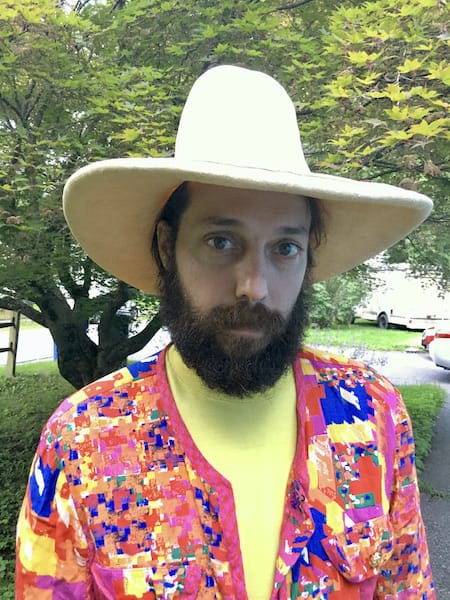

Singing, Dreaming and Resistance Among the Water Guardians of Cajamarca, Peru,” with Chris Santiago, Board Member.
Registration is required.
Registration closes on the Thursday before the event at 5:00 Pacific Time.
Please register for these events at aocgeneral@gmail.com
This video presentation is based on Santiago’s fieldwork with the peasants of Cajamarca (2012-2014) and their struggle against the Conga gold mining mega-project. The presentation focuses on dreaming and singing as native arts of resistance that proved crucial in the fight for water and life, specifically the dreams and songs of Señora Máxima Acuña Atalaya de Chaupe and Señora Santos, and reflects on the power of cultural resistance.
Christopher Santiago (PhD, Columbia University, 2017);
Positions Held: Substitute Lecturer (2019-2020) College of Staten Island (CUNY); Adjunct Professor (2018-2019 & 2020-2021) College of Staten Island; Adjunct Professor (2018) New York City College of Technology (CUNY); Adjunct Professor (2016) York College (CUNY); Interests and/or Activities: phantasm, social & environmental justice, participated in Q&A for the film “Máxima” with director Claudia Sparrow at NYU (2020); Significant Publications: “Hystorize from the Self: D.H. Lawrence and ‘The Lovely Lady’”, The Psychoanalytic Review, 2019. “Twilight States: Comparing Case Studies of Hysteria and Spirit Possession”, HAU: Journal of Ethnographic Theory, 2021. “Blood Magic In The Age of Psychopathy, Mass Shootings and Ecological Catastrophe”, C. Santiago and M. Melmed, The American Journal of Psychoanalysis, 2022.
Based on years of fieldwork in Cajamarca, Peru, my research focuses on the theory and practice of cultural resistance in the form of dreams, songs, stories, and jokes which I call the shamanic aspects of the struggle against industrial extraction. The campesinos of Cajamarca say the lagoons and mountains lead the fight. Facing the death of the Earth, the resurgence of Pacha Mama consciousness in South America is a contemporary manifestation of Andean messianism. In our age of global meltdown, what is the ‘dreamweapon’ that would allow the voices of nature to speak once again? What is the potential of cultural forms widely considered false, fictitious, and counter to truth? Critiquing Western rationality, I call for the reenchantment of inner and outer nature. I seek to reverse the historical trauma that dissociates us from our imaginations and our bodies through the realization that, as the premodern West knew, there is no thought without a phantasm. Abolishing the reactive idealism which separates phantasy and reality, I revalue experience as mythological revolt, in an eruption of spirits. How was magic separated from history? How has the imagination been dominated and domesticated? How does this give rise to different temporalities of hysteria?